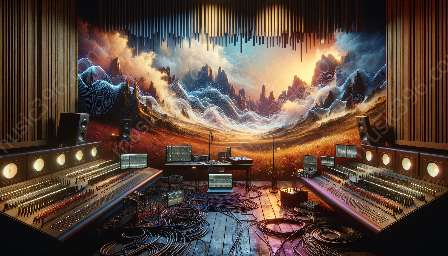Experimental music artists face a unique challenge in maintaining creative freedom while respecting intellectual property rights. This topic cluster will explore the complexities of intellectual properties and rights in experimental music, delving into the intersection of experimental and industrial music with the legal aspect of music creation and distribution.
Understanding Intellectual Property Rights in Experimental Music
Intellectual property rights form the legal foundation for artists to protect their creative works. In the context of experimental music, these rights include copyright and related rights, which safeguard original musical compositions, sound recordings, and performances. Additionally, intellectual property laws extend to concepts such as design rights, trademarks, and patents that may be relevant to the production and distribution of experimental music.
Challenges and Opportunities in Experimental Music Creation
Experimental music, characterized by unconventional sounds and innovative techniques, may present challenges in navigating intellectual property rights. Artists are often faced with the tension between pushing artistic boundaries and safeguarding their creations without infringing upon the rights of others. This delicate balance requires a nuanced approach that allows for creative exploration while respecting the legal frameworks that protect intellectual property.
Creative Freedom within Legal Boundaries
One approach for experimental music artists to maintain creative freedom while respecting intellectual property rights involves seeking a thorough understanding of copyright law and related rights. By familiarizing themselves with the legal frameworks governing music creation and distribution, artists can make informed decisions that uphold their creative vision while respecting the rights of other creators.
Exploring Collaboration and Licensing
Collaboration and licensing agreements can provide avenues for experimental music artists to leverage their creative works while honoring intellectual property rights. Through carefully crafted agreements, artists can navigate the complexities of sampling, remixing, and incorporating existing works into their experimental music, ensuring that all parties involved benefit from the collaboration while abiding by legal considerations.
Embracing Innovative Distribution Models
As the digital landscape continues to evolve, experimental music artists have the opportunity to explore innovative distribution models that align with intellectual property rights. Platforms that support fair compensation, transparent licensing, and alternative distribution methods can empower artists to share their experimental works while safeguarding their intellectual property rights and receiving appropriate recognition and remuneration.
The Intersection of Industrial Music and Intellectual Property Rights
The industrial music genre, known for its industrial sounds, mechanical rhythms, and experimental composition techniques, presents a unique case within the realm of intellectual property rights. Artists and creators in the industrial music sphere must navigate the crossover between creative expression and legal protection, considering how to maintain the integrity of their work while respecting the rights of others.
Balancing Innovation and Legal Compliance
Industrial music artists face the challenge of balancing their innovative approaches with legal compliance. This balance is crucial in preserving creative freedom while upholding the rights of copyright holders and other stakeholders in the music industry. By developing an awareness of industry standards and legal requirements, industrial music artists can pursue their creative endeavors while remaining mindful of intellectual property considerations.
Creative Commons and Open Source in Industrial Music
Embracing open licensing frameworks such as Creative Commons can offer industrial music artists a way to share their works while allowing for certain permissions and freedoms for others to use and build upon their creations. Engaging with open source platforms and communities can expand the reach of industrial music while upholding principles of creative freedom and intellectual property respect.
Conclusion
As the realm of experimental and industrial music continues to evolve, maintaining creative freedom while respecting intellectual property rights remains a multifaceted challenge. By understanding and engaging with the complexities of intellectual properties and rights in experimental music, artists can navigate the intersection of creativity and legal compliance, ultimately contributing to a vibrant and sustainable music landscape that embraces innovation while upholding the principles of intellectual property protection.































